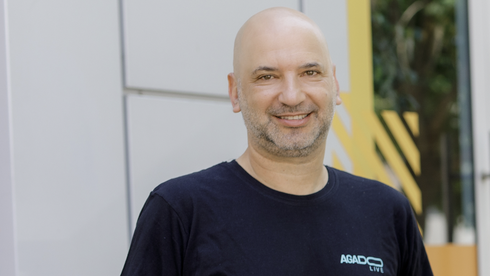






:quality(70)/cloudfront-eu-central-1.images.arcpublishing.com/thenational/OPKG5SYTM4JVKJASFMZGCFD7XU.jpg)

Dr. A.I. “Ed” Mlavsky, the founding partner of Gemini Israel Ventures, played a significant role in fostering successful joint ventures between Israeli and American companies. He immigrated to the United States in 1956 and contributed to the growth of Tyco, eventually becoming CTO and president. In 1979, he moved to Israel to serve as executive director of the Israel-US Binational Industrial Research and Development Foundation (BIRD-F), promoting industrial research cooperation between the two countries. Mlavsky founded Gemini Israel Ventures in 1993 and managed the first venture capital fund under the Israeli government's Yozma program. He received numerous awards for his contributions to the Israeli hi-tech industry and published a book on the early days of Israeli hi-tech and venture capital. Mlavsky's departure leaves a void in the Israeli tech community [47c79b1a].
The ongoing conflict between Israel and Hamas has had a significant impact on the Israeli tech sector. Funding difficulties have been exacerbated by the war, with a 70% fall in fundraising in the first half of the year and a 14% drop in the third quarter [f3bad24a]. The conflict is expected to further slow down overseas investment in the coming weeks and months [afcb89e9]. However, experts believe that investors will not lose faith in Israeli tech startups quickly, given the sector's track record of functioning during conflicts and recovering from them [1c4fedf3].
In addition to funding challenges, Israeli tech companies are also facing cyber attacks from hacker groups worldwide. These attacks have caused disruptions such as false rocket alarms and website outages [486b9ed1]. Despite these obstacles, the Israeli tech sector continues to persevere. The sector plays a crucial role in the country's economy and heavily relies on foreign investment. Israeli tech companies are actively supporting the country by collecting supplies for soldiers, and some employees are reporting for reserve duty [1c4fedf3].
The war has also impacted venture capital deals in Israel. Since the start of the conflict, venture capital activity has significantly slowed down, creating uncertainty and instability in the startup ecosystem and innovation sector [058d178a]. However, some experts believe that this slowdown may be temporary, and once the situation stabilizes, venture capital activity could pick up again [058d178a].
Despite the challenges posed by the ongoing war, Israeli startups are adapting and continuing to work. They have shifted to remote work and digital communication tools like Zoom to ensure business continuity. These startups have also prioritized the mental well-being of their team members and provided support to employees who are parents or serving as reservists [f8cd3a28].
The concerns raised by Dr. Tomer Simon, Chief Scientist of Microsoft Israel R&D, about the impact of the war on the high-tech industry further emphasize the need for political stabilization and economic recovery to sustain the growth of the sector [90ef02bb].
The resilience in the face of funding challenges and cyber attacks demonstrated by the Israeli tech sector, along with the recognition of the importance of cybersecurity by businesses worldwide, highlights the determination to overcome obstacles and continue driving innovation. It also emphasizes the need for specialized assistance, such as that provided by Freedom Tech, to protect against cyber hacking threats [7accc768].
Israel Tech Guard, a not-for-profit organization formed in response to a recent terror attack, has mobilized over 200 volunteers from Israel's tech community to develop Generative AI and computer vision-based security and defense solutions. The organization is seeking $2 million in funding to hire volunteer management and acquire necessary resources. The solutions being developed include a mobile web app for blood donation eligibility checks, an app to track patient location during rehabilitation, an automated media analysis system for social networks, a platform to detect drone-based attacks, and more. Israel Tech Guard takes an agile approach to development, ensuring rapid deployment of solutions to meet the fast-changing needs of warfare. The organization has received positive feedback and support from partners, including Elbit Systems, an international defense electronics company [3c7cacc6].
The Frontline Initiative has been created to support Israeli startups during the ongoing conflict with Hamas. The initiative aims to connect investors and founders to inject a total of $50 million directly into Israeli startups. It provides capital, revenue opportunities, and talent sourcing to help startups overcome the challenges posed by the conflict. Several portfolio companies have already received $500,000 each in emergency capital. The Frontline Initiative is supporting startups like Multikol, which specializes in biometric authentication solutions, Novacy, which provides revenue teams with insights into prospect perceptions, OviO, a mobile app that offers rewards to users for in-game actions, and Dataspan, which enables the instant creation of computer vision applications. The initiative is led by venture capital professionals, including Jarrad Berman, and aims to provide 80% of applicants with capital or business opportunities [364b8d3c].